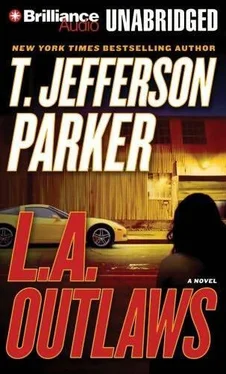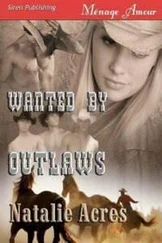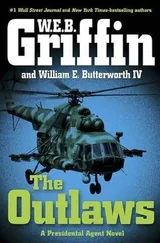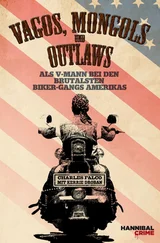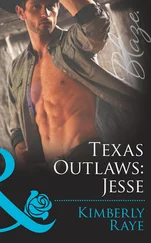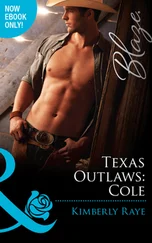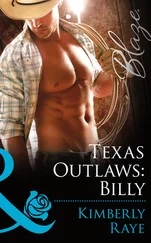I have to turn to see the police car pulling up behind me.
I drop Cañonita into a box of tissues then swing the mirror back in place and the sun visor down. I strip off the wig, mask and gloves and jam them under my seat. I make sure my leather vest covers the pepper spray at my waist. My heart smacks my chest and my breath gets faster. It’s a solo car, one officer getting out now, his flashlight on. He walks toward me, hugging my vehicle to discourage a shooter. I get my purse onto my lap and come up with a mascara pencil, which I now use to touch up my left eye in the vanity mirror on the top side of the visor. When the officer gets to my window I look at him and power it down. He’s a big-shouldered white guy, looks like a weightlifter.
“Good evening,” he says.
“Hi, Officer.”
“Driver’s license please.”
I drop my mascara pencil back into my purse and dig out my wallet. I give him my CDL, where I have long brown hair. The officer looks at me, then again at the license.
“Suzanne Jones,” he says. “The witness? The schoolteacher?”
“Yeah.”
He takes my license back to his unit and I can see him on the radio. He’s not sure what to do with me, and his watch commander won’t be sure either. For one thing, I’m not under his jurisdiction as a witness, and for another, I’m not wanted. I’m just a schoolteacher being victimized by a killer. They can even run the Sentra plates, but thanks to Angel the vehicle title is in order and it hasn’t been on the hot list since the cops recovered the stripped chassis months ago.
My lucky day.
He comes back and hands me the license.
“Do you need help, Ms. Jones?”
“I’m very well, thank you. I appreciate your asking.”
“This is just a no parking zone here tonight. Street cleaning ten to midnight. Sorry.”
“Is it that late?”
“Yes, it is. Far from Valley Center, aren’t you?”
“Good friends are worth a drive.”
“Thank you for standing up to that guy. You did the right thing.”
I start the car and put it in gear. “Thanks, Officer.”
“Thank you . And have a nice night.”
So I hold up a 7-Eleven down in Huntington Beach instead.
I’m the only customer. The clerk is Indian and quite polite as he puts the bills into a plastic bag. He’s a young man but he wears glasses and he looks over the top of them at my face, then my gun, then my face again.
“You should go,” he says. “The police come here almost every hour.”
I turn just as the door swings open and three surfer dudes spill in-flip-flops and sweatshirts and matted hair. They laugh until they see me coming their way, then they quiet down, bumping into each other as they come to a halt. Their eyes are slits and their Adam’s apples bob.
“Whoa.”
“Allison.”
“Gun.”
“Hey, can I like take a picture?”
“Sure, but be quick.”
The clerk comes around the counter. “Perhaps I can be in the picture, too?”
“Cool.”
“Get close,” says one of the surfers.
He steps back toward the door, a cell phone out. His buddies and the clerk join me but they’re too scared to get up close so I gather them in. The smell of weed is strong.
The surfers laugh their stoned laughs and I’m in a little bit of a hurry here so I yank one of them in by the hood of his sweatshirt and Cañonita goes off.
The roar is deafening.
The surfer dude screams and drops. The cameraman runs outside. The third surfer dives to the floor and scrambles down the aisle on hands and knees, flip-flops jumping off his feet. The clerk backs away from me with terror in his eyes.
I stride to my car, mask off, head up, plastic bag containing maybe a quart of beer or a box of cereal swinging in my left hand. But my right ear is ringing from the gunshot and my heart is racing and my nerves feel they’ve been stroked with a wire brush. Once again I’ve forgotten to hand out business cards. I wonder if it’s a run of bad luck or if I’m losing my nerve.
An HBPD patrol car swings into one of the 7-Eleven lot entrances as I exit another and goose it for the on-ramp.
Back at the Rendezvous Hotel I shower and change and go down to the bar in the ballroom. The Vietnamese dance to an orchestra. Everyone is Vietnamese, not a round-eye in the room except for me. Most of the people here are older and established. They had the means to flee the war and ended up here, where they built a place to remind them of home. They’re good dancers-cha-chas and fox-trots and waltzes. The men are in suits and the women in dresses and the air is thick with smoke. The walls are mirrored.
I’m tired all the way to my bones. I think about my boys and my mom and Hood and almost blowing the surfer’s brains out. Wait until that makes the news. I must have had a tighter grip on Cañonita than I thought. I must have been more nervous than I thought. I don’t know. But I do know that luck changes like everything else and I get the idea that Quang should have names and addresses to send that jewelry to in case I’m not able to deliver it personally.
Joaquin wrote in his journal about coming across an old man and his white dog walking the road to Nevada City one day. The man wore clothing that was little better than rags and his shoes were held together with baling wire. Joaquin slowed his gang of bandits and got off his horse and walked along with the old man and they spoke Spanish and the man told him that he had once been rich and now he was poor and rich was better. He said the worst thing about being poor wasn’t hunger or cold but being made to look ridiculous. Joaquin unloaded a bundle from one of the packhorses and in the grass he unrolled it. Inside was a new suit of clothes, a pure woolen suit in black, with a white cotton shirt and a black satin necktie. From another packhorse Joaquin got a new pair of leather boots, black and beautiful. Joaquin loved clothes. The bandits waited while Joaquin used a needle and thread to shorten the pant cuffs. The old man went into the trees and when he came out he was wearing the suit and boots and his chin was up and his eyes looked clear and he was smiling. Joaquin and his men then mounted up and pounded away in clouds of dust and continued on to Nevada City. They gambled and drank and bought women and things. Joaquin bought two new suits. Three days later on the road out of town they came across the old man, hung by his neck from a big sycamore tree, still dressed in his finery. The white dog lay beneath him, baying and growling. A note pinned to the coat lapel said: “This is what happens to friends of Murrieta.”
Joaquin said a prayer for the old man, called the dog and rode away.
When I first read that part of the journal I could feel Joaquin’s luck changing. He could feel it, too, and he said so. He said it was like a dark cloud he couldn’t see but he could feel the way it blocked the sun and made the world a cold place. Thirty days later they shot him down and cut off his head and you know the rest.
I wonder what I’ll do with Joaquin’s head. I don’t love it but it is rightfully mine and it is my personal history, love it or not. Is it a curse? Is it a blessing? Either way it will belong to my sons after I go. I wonder if it’s time to have the talk with Bradley.
The talk.
I’ll never forget the talk I got. My great-uncle Jack- Mom’s side-took a liking to me when I was very young. He paid special attention to me. I remember him holding me on his lap, listening to my early words, just sitting and watching me. He read to me. Later I noted that none of his other great-nieces or -nephews or even his own grand-children had anything nice to say about him. But he continued to give me special gifts for my birthday and Christmas. He taught me to dance.
Читать дальше
